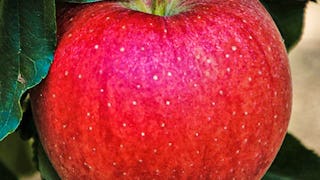Around the world, we find ourselves facing global epidemics of obesity, Type 2 Diabetes and other predominantly diet-related diseases. To address these public health crises, we urgently need to explore innovative strategies for promoting healthful eating. There is strong evidence that global increases in the consumption of heavily processed foods, coupled with cultural shifts away from the preparation of food in the home, have contributed to high rates of preventable, chronic disease. In this course, learners will be given the information and practical skills they need to begin optimizing the way they eat. This course will shift the focus away from reductionist discussions about nutrients and move, instead, towards practical discussions about real food and the environment in which we consume it. By the end of this course, learners should have the tools they need to distinguish between foods that will support their health and those that threaten it. In addition, we will present a compelling rationale for a return to simple home cooking, an integral part of our efforts to live longer, healthier lives.



Stanford Introduction to Food and Health

Instructor: Maya Adam, MD
Access provided by Wawasan Open University
1,006,961 already enrolled
(34,013 reviews)
Skills you'll gain
Details to know

Add to your LinkedIn profile
4 assignments
See how employees at top companies are mastering in-demand skills

There are 5 modules in this course
In this section, we will examine the social and cultural shifts that have contributed to our modern epidemics of overweight and obesity. We will briefly review the nutrients found in foods, their different functions in the human body, and how we can support our own health by choosing wisely from the foods within each category. Additionally, we will explore the ways in which highly processed foods differ from real, whole food and the implications of food processing on our health. We’ll look at how our consumption of sugar has changed in recent decades and explore sensible solutions for those wishing to start eating better. We will also meet Kevin, a middle-aged pre-diabetic man, and find out how a step-wise approach to behavior change helped him improve his health.
What's included
11 videos2 assignments
This section focuses on sustainable solutions to the challenge of choosing healthier foods more frequently. Michael Pollan explains his mantra and how we can use it to make better food choices. We also begin to explore practical tips for preparing foods that will support our health and enjoyment.
What's included
4 videos1 assignment
In this section you will find more practical tips for grocery shopping, reading labels and assembling a balanced meal. We also learn more about the most important secret ingredient for success: moderation.
What's included
4 videos1 assignment
A few years ago, a friend of mine started a healthy eating and fitness website called Grokker. She asked me to make some instructional cooking videos and generously agreed to share some of them with you. Thanks, Lorna! (If you like this section, you can find many more great videos on cooking and fitness at Grokker.com)
What's included
10 videos10 readings
Here is a list of recommended books and videos that can help deepen your understanding of the course material. Feel free to explore the recommendations on this list to learn more about food, health, eating behaviors, and more.
What's included
3 readings
Instructor

Offered by
Why people choose Coursera for their career




Learner reviews
34,013 reviews
- 5 stars
79.58%
- 4 stars
15.64%
- 3 stars
3.42%
- 2 stars
0.76%
- 1 star
0.57%
Showing 3 of 34013
Reviewed on Aug 22, 2017
This course helped me a lot in order to understand about the importance of planning a good meal. It would be even amazing to have recipes at the end that more vegan and also without the use of sugar
Reviewed on Feb 13, 2020
Great course, simple yet very informative. I really enjoyed the way it was filmed, with different charts, examples and real life shots. Also the interview-style learning. Both instructors were great.
Reviewed on Jun 28, 2020
The course was very informative and practical. All of the videos were easy to understand, and both speakers very clear and concise in their lectures. I would recommend this course to all my friends.
Explore more from Health

Johns Hopkins University

Stanford University

Johns Hopkins University

Stanford University

